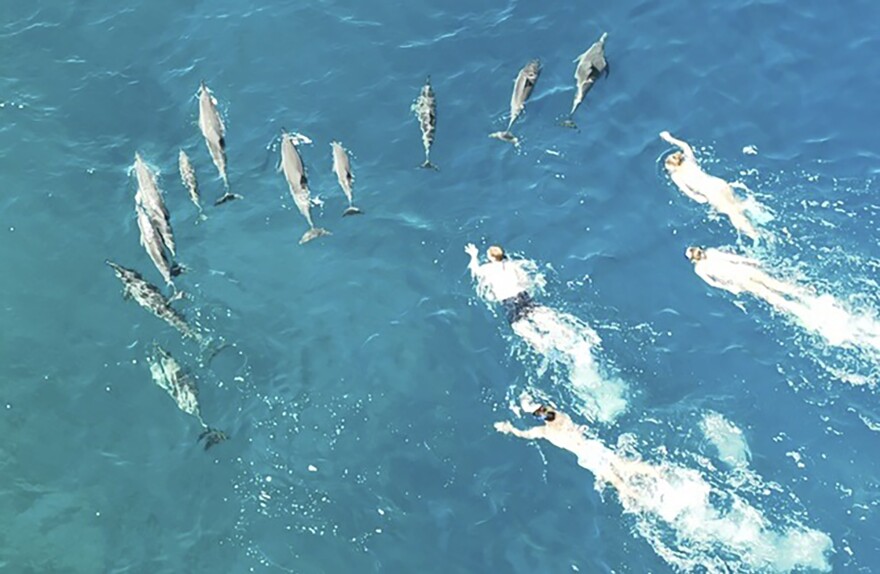Federal law enforcement is investigating a group of 33 swimmers who allegedly harassed a pod of dolphins in Hawaii, the state's Department of Land and Natural Resources said this week.
Drone videos and photographs allegedly show the group swimming in the Hōnaunau Bay on Sunday and "aggressively pursuing, corralling, and harassing the pod," the DLNR said.
Officers with the DLNR's Division of Conservation and Resources Enforcement flagged down the group while they were in the water and alerted them of their violation. When the swimmers got back to land, officers from the DLNR and the National Oceanic and Atmospheric Administration were there waiting.
DLNR officers are authorized "to enforce federal marine laws, such as the Marine Mammal Protection Act," which was amended in 2021 to prohibit swimming, approaching or being within 50 yards of a Hawaiian spinner dolphin within two nautical miles of the shores of the main Hawaiian islands and other designated waters.
Copyright 2023 NPR. To see more, visit https://www.npr.org.


